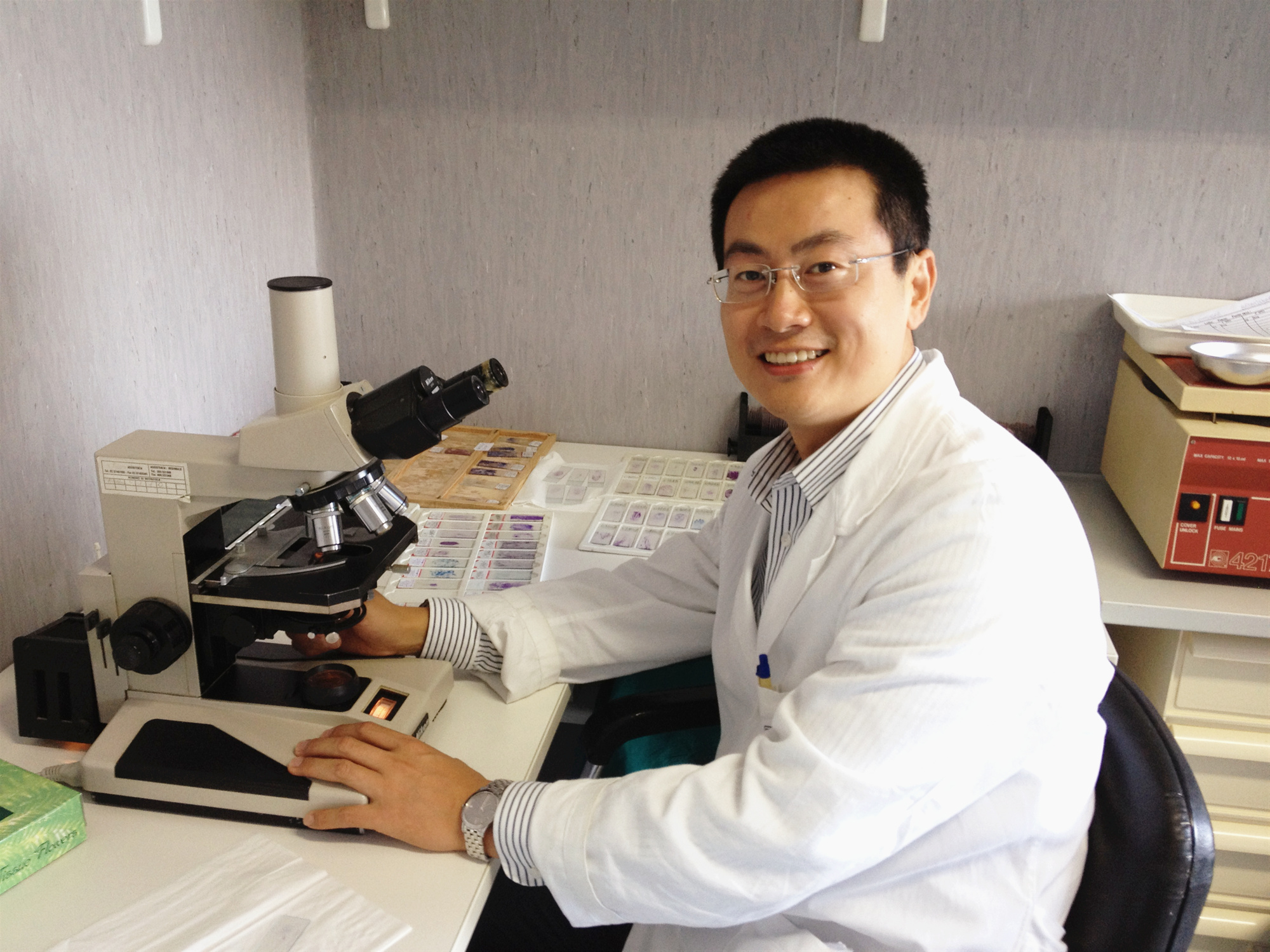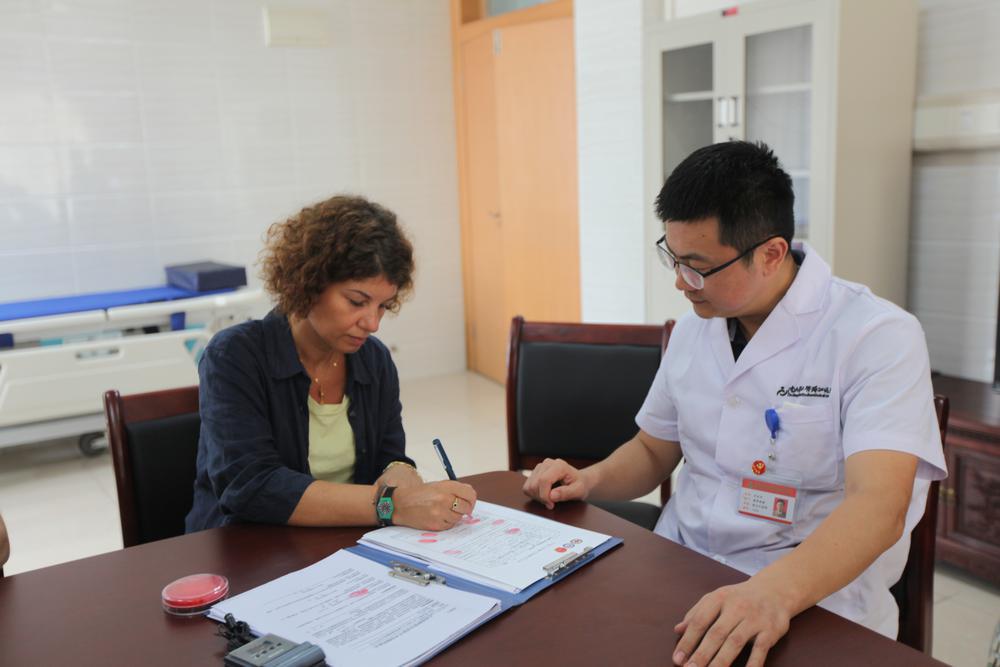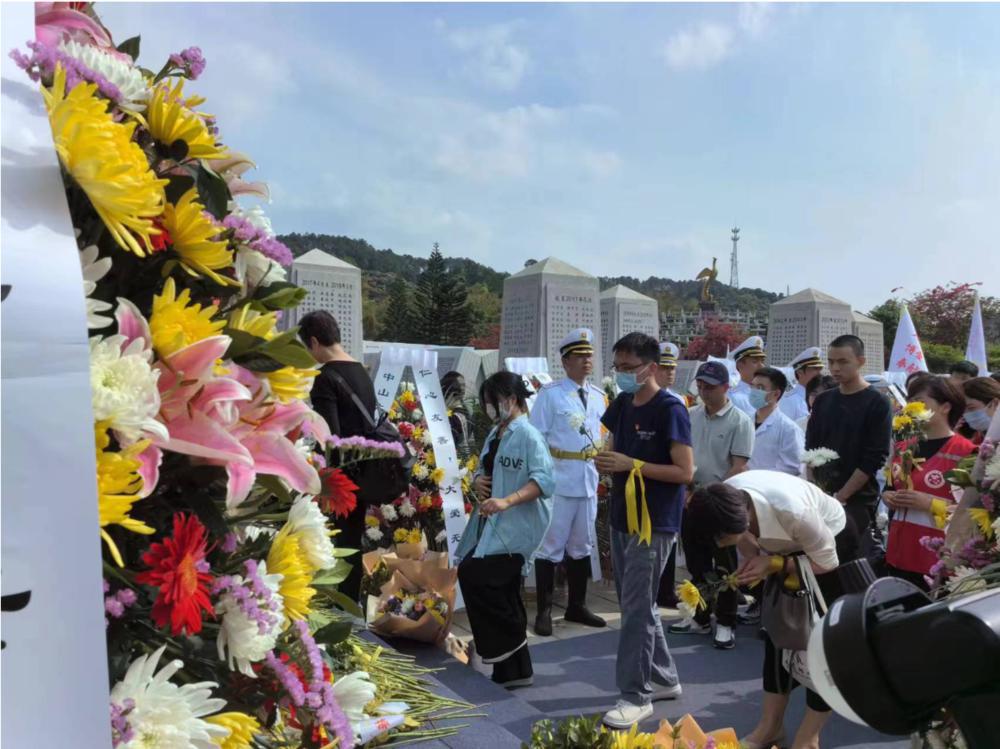
Every year at the Qingming Festival, Luo (alias)'s grandfather would go to the estuary of the Pearl River to pay tribute to his grandson. It is reported that after Luo's passing, his grandfather learned from a doctor that organ donation could save or improve the lives of other children in need. The grandfather agreed to donate, saying, "My grandson's organs save the lives of other children, thus perpetuating his existence in a meaningful way. In the city where the recipients of my grandson's organs live, I can feel his presence."
 The doctor's name is Liu Yongguang, who was an organ donation coordinator at the Zhujiang Hospital of Southern Medical University at the time, as well as a transplant surgeon. Over more than ten years, he witnessed over 400 farewells and welcomed over 1,000 rebirths.
The doctor's name is Liu Yongguang, who was an organ donation coordinator at the Zhujiang Hospital of Southern Medical University at the time, as well as a transplant surgeon. Over more than ten years, he witnessed over 400 farewells and welcomed over 1,000 rebirths.
"At the most painful moment for the family, organ donation is something difficult to talk about," Liu Yongguang smiled, recalling that when he first started his work, the first challenge he encountered was not families unwilling to donate, but himself being unable to speak about it.
 When communicating with the families of the deceased, coordinators must first make them understand that death is the root of emotional distress experienced by families in the wake of losing a loved one, and organ donation is a meaningful opportunity to honor the legacy of their loved ones. Secondly, they need to alleviate the guilt of the deceased's family, avoiding refusal due to self-blame for inadequate care or delayed medical treatment of the deceased. Finally, during communication, it's important to avoid using negative terms like "cutting" or "removing" organs, and instead, use words like "rebirth" and "saving" to prevent the family from being disgusted.
When communicating with the families of the deceased, coordinators must first make them understand that death is the root of emotional distress experienced by families in the wake of losing a loved one, and organ donation is a meaningful opportunity to honor the legacy of their loved ones. Secondly, they need to alleviate the guilt of the deceased's family, avoiding refusal due to self-blame for inadequate care or delayed medical treatment of the deceased. Finally, during communication, it's important to avoid using negative terms like "cutting" or "removing" organs, and instead, use words like "rebirth" and "saving" to prevent the family from being disgusted.
To promote organ donation, coordinators conduct inspections in relevant departments of hospitals to identify patients approaching brain death or already brain dead. Subsequently, these patients undergo medical assessments and social relationship evaluations. Following the evaluations, coordinators collaborate with medical professionals and the patients' families to determine whether organ donation is a viable and appropriate option.
"In most cases, families undergo emotional turmoil and vent their anger on coordinators. This is something we must face and is also part of our work," Liu Yongguang said. "In addition to making families understand the significance of organ donation, we also need to help suffering families alleviate the pain of losing their loved ones and help them adjust to their new reality."
 Liu Yongguang admitted that the success rate of organ donation coordination is not high, with only 5% of the families of the deceased agreeing to donate even after coordination.
Liu Yongguang admitted that the success rate of organ donation coordination is not high, with only 5% of the families of the deceased agreeing to donate even after coordination.
"Organ donation and transplantation are signs of modern civilization, and we are fortunate to be involved," Liu Yongguang said. For coordinators, while the failure to coordinate an organ donation can be disheartening, it is overshadowed by the emotional weight of witnessing the vulnerability of life and the sorrow of saying goodbye to loved ones.
Data shows that since the pilot project of human organ donation began in 2010, after more than ten years of continuous efforts by the Guangdong Red Cross, by the end of 2023, a total of 6,899 organ donations, 5,846 cornea donations, and 2,166 body donations had been completed. About 590,000 caring individuals in the province have voluntarily registered as human organ (body, tissue) donation volunteers, and organ donation quantity has been the highest in the country for 14 consecutive years.
Source:Yangcheng Evening News
器官协调员:做生命接力的“摆渡人”
又到一年清明,每年这个时候小罗(化姓)的爷爷都会前往珠江口,在这里缅怀小罗。据悉,小罗的爷爷在孙子离世后从一位医生那里了解到,器官捐献可以为更多孩子带来生的希望,他便同意了捐献:“小孙子的器官为其他孩子带去了生命,这样他也不算完全离开我们。在小孙子器官捐献接受人的城市里,我能呼应到他的存在。”
这名医生叫刘永光,当时是南方医科大学珠江医院的器官捐献协调员,也是一名器官移植外科医生。十多年里,他见证了400多场离别,也迎接了1000多场重生。
“家属在最痛苦的时候,器官捐献是一件让人难以启齿的事情。”刘永光笑道,自己在刚刚开展工作的时候,遇到的第一个难题不是家属不愿意捐献,而是自己“张不开嘴”。
与逝者家属沟通时,协调员首先要让家属了解到死亡才是痛苦的根源,而器官捐献只是死亡之后的形式;其次,协调员要缓解逝者家属的愧疚感,避免逝者家属因自责于对逝者照顾不周、送医迟缓而拒绝;最后,在具体沟通的时候应避免使用对器官“切割”“摘去”之类的意象不好的词汇,多使用重生、挽救之类的话语,避免引起家属的反感。
为了推进器官捐献的工作,协调员们会在医院相关科室巡查了解接近脑死亡,或者已经脑死亡的患者,再对患者进行医学评估和社会关系研判,与医生和患者家属共同决定是否进行器官捐献。
“很多时候,家属会有情绪,迁怒到协调员,这是我们必须面对的,也是我们工作的一部分。”刘永光说道,“我们要做的,除了让家属了解器官捐献的意义,还要帮助受难的家庭缓解亲人离世的痛苦,让家庭重新回到正常的道路上来。”
刘永光坦言,器官捐献协调工作成功率并不高,即使经过协调也仅有5%的逝者家属同意捐献。
“器官捐献和移植是现代文明的标志,我们有幸参与其中。”刘永光表示,在协调员的工作中,最大的打击不是协调失败,而是在一次次与患者家属的共情中感受生命的脆弱,体会离别的悲伤。
数据显示,自2010年开展人体器官捐献工作试点以来,广东省红十字会经过十余年持续努力,截至2023年底,已累计完成器官捐献6899例、角膜捐献5846例、遗体捐献2166例,全省有约59万名爱心人士主动登记成为人体器官(遗体、组织)捐献志愿者,器官捐献数量连续14年全国第一。
文|记者 薛仁政 通讯员 伍晓丹 韩羽柔
图|受访者提供
翻译 | 刘佳慧
-
French musical 'Don Juan' to premiere in Guangzhou in April
2024-04-05 21:48:58 -
Guangdong tourism ranks second nationwide on first day of Qingming Festival holidays
2024-04-05 21:48:58 -
Guangzhou participates in the G20 Sustainable Finance Working Group Meeting
2024-04-05 21:48:58 -
Consulates explore cultural heritage|Consulates from 16 countries experience Lingnan intangible cultural heritage in Guangzhou
2024-04-04 22:39:28






